 1
1 1
1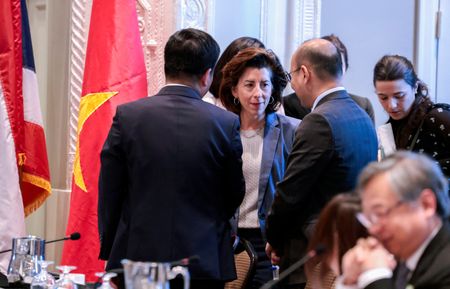
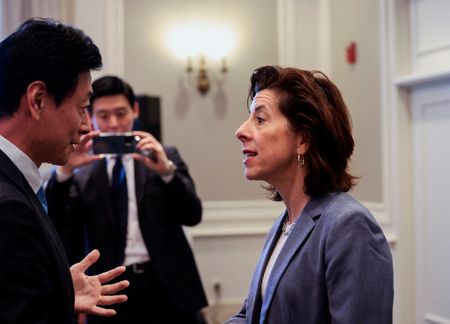
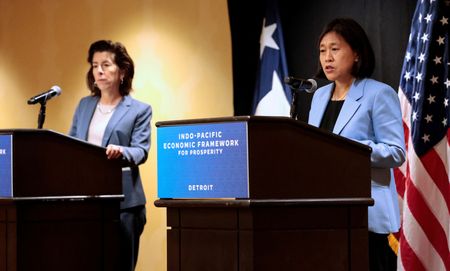
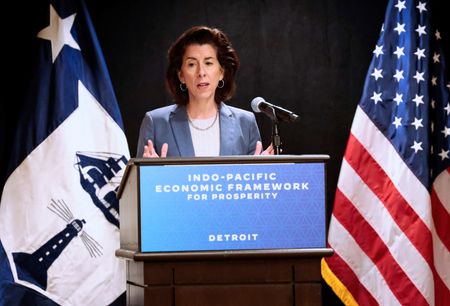
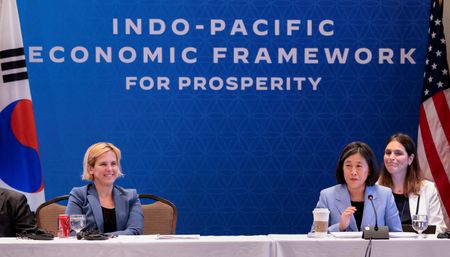
By David Lawder
DETROIT (Reuters) – Trade ministers of 14 countries in the U.S.-led Indo-Pacific Economic Framework (IPEF) talks “substantially completed” negotiations on an agreement to make supply chains more resilient and secure, U.S. Commerce Secretary Gina Raimondo said on Saturday.
The “first of its kind” agreement calls for countries to form a council to coordinate supply chain activities and a “Crisis Response Network” to give early warnings to IPEF countries of potential supply disruptions, Raimondo told a news conference following a ministerial meeting in Detroit.
The deal provides an emergency communications channel for IPEF countries to seek support during supply chain disruptions, coordinate more closely during a crisis and recover more quickly.
Raimondo cited shortages of semiconductors during the COVID-19 pandemic that shut down American auto production, idling thousands of workers.
“I can tell you I would have loved to have had that Crisis Response Network during COVID. It absolutely would have helped us secure American jobs and keep supply chains moving,” she said.
The supply chains agreement, led by Commerce, marks the first tangible outcome of a year’s worth of IPEF discussions. But it is just one the four “pillars” of the IPEF talks.
The other pillars — trade, climate transition, and labor and inclusiveness — are more complex and expected to take longer to negotiate.
The supply chains agreement also includes a new labor rights advisory board aimed at raising labor standards in supply chains, consisting of government, worker, and employer representatives, the Commerce Department said.
(Reporting by David Lawder; Editing by Chizu Nomiyama and David Gregorio)